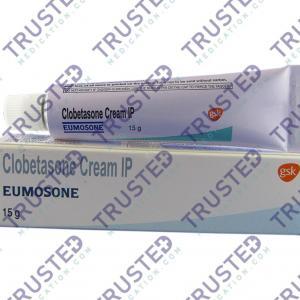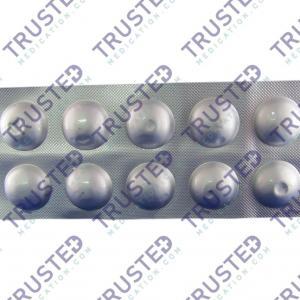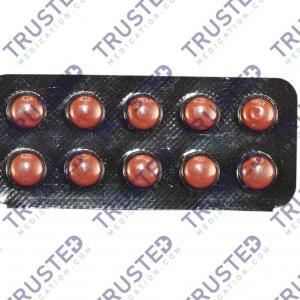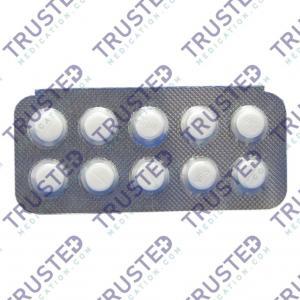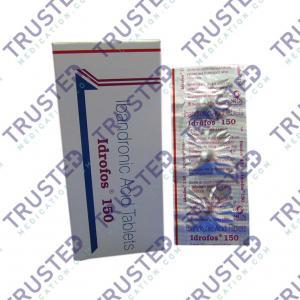Rivastigmine is a medication used for the management and treatment of mild to moderate dementia in people with Alzheimer’s disease. Dementia is a brain disorder that affects the ability to think clearly, remember, communicate and perform daily activities. It may cause mood changes and personality changes for those who have it. Rivastigmine is also used for mild to moderately severe dementia in people with Parkinson’s disease.
Alzheimer’s disease is one of the most common forms of dementia that affects over half of those living with dementia. It’s one of those diseases that we all fear. Alzheimer’s disease is caused by a loss of brain cells due to the imbalance in the chemical messengers in the brain known as a neurotransmitter. It progresses pretty rapidly. It tends to progress, deteriorate and lead to death within 7 to 10 years but progression varies between individuals. For some, the progress may be slow, whereas, for others, the progress is rapid.
It belongs to the type of drug known as an acetyl cholinesterase inhibitor. One of the features of Alzheimer’s disease and Parkinson’s disease is the lower than normal level of acetylcholine in the brain due to the degeneration of the brain cells. This drug slows down the breakdown of acetylcholine in the brain. Acetylcholine is involved in processes such as reasoning, thinking and memory. When acetylcholine is released, it is then broken down by the enzyme acetylcholinesterase. Rivastigmine acts to reversibly block the function of this enzyme. Inhibiting this enzyme prevents the breakdown of acetylcholine and increases its level in the brain. This provides temporary relief from Alzheimer’s disease symptoms by improving the communication between cells and improving the cognitive process of learning, thinking and memory.
Rivastigmine has been shown to provide meaningful symptomatic effects that allow the patient to be themselves and remain independent longer. Its efficacy is similar to Donepezil.
When and How to Use Rivastigmine
Mild to moderate Alzheimer’s disease:
The initial dose is 1.5 mg two times a day. You can take this medication by mouth with meals preferably in the morning and in the evening. The maintenance dose is increased to 3 mg twice a day after 2 weeks. The dose may subsequently be increased to 4.5 mg or 6 mg a day.
Mild to moderate Parkinson’s disease:
The initial dose is 1.5 mg twice a day. Take it in the morning and evening meals. Your doctor may increase your dose to 3 mg two times a day and further 4.5 mg twice a day and 6 mg two times a day after 4 weeks.
Follow the directions on the prescription label. If you have any questions or parts that you do not understand, ask your doctor or the pharmacist. Take it exactly as directed. Swallow the capsule whole with plenty of water. Do not crush, chew or open the capsule. Do not take more than what is prescribed.
What to know before taking Rivastigmine
- A doctor can only prescribe this drug if the patient has a caregiver who can regularly give the medication to the patient.
- This drug can cause weight loss. For this reason, monitor your patient’s body weight regularly while taking this. It can make them dizzy and sleepy. They need to take extra when doing potentially hazardous activities.
- Inform the doctor right away if the patient experiences unwanted side effects while taking this drug.
- Do not use Rivastigmine if:
- You are allergic to any of its ingredients
- You are pregnant or breastfeeding
- You have a severe form of dementia associated with Alzheimer’s or Parkinson’s disease.
- Use Rivastigmine with care if:
- You have a kidney or liver problems
- You have a current peptic ulcers
- You have heart problems such as heart block or sick sinus syndrome
- You have a history of chronic obstructive pulmonary disease (COPD)
- You have difficulty passing of urine
- You have epilepsy
- If you are taking any other medications, inform your doctor. Rivastigmine may interact with other drugs like:
- cold medications
- medicines to treat overactive bladder
- asthma medications
- beta-blockers
- high blood pressure medications
- non-steroidal anti-inflammatory drug
Possible Side Effects of Rivastigmine
Rivastigmine may cause unwanted side effects aside from its intended effects. Common side effects are:
- Diarrhea
- Dizziness
- Lack of energy
- Nausea and vomiting
- Stomach pain
- Weight loss
- Headache
- Weakness
- Loss of appetite
- Difficulty falling asleep or staying asleep
- Increased sweating
Serious side effects are:
- Seizures
- Anxiety
- Rash
- Hives
- Difficulty swallowing
- Difficulty breathing
- Depression
- Painful urination
- Bloody vomit
- Black and tarry tools
- Uncontrollable muscle contraction or movements
- Symptoms of dehydration like being unable to urinate, feeling very thirsty, dry skin and heavy sweating
This is not a complete list of side effects. In case of serious side effects, contact your doctor as soon as possible.
Getting the Best Result from Rivastigmine
- Rivastigmine can only slow down the progression and worsening of dementia. It will not cure Alzheimer’s and Parkinson’s disease.
- If this medication hasn’t slowed the worsening of symptoms after using it for three months, discontinue using it and talk to your doctor. For those who continue the treatment, reassessed the benefit it has on the patient regularly. Stop the treatment when it is no longer beneficial.
- You can easily become dehydrated while taking this medication. Call your doctor if you are sick with diarrhea or vomiting or if you are sweating more than usual.
- If you have stopped taking it for any reason, do not restart right away without telling your doctor. Your doctor may start giving you again a low dose.
- For a missed dose, take it as soon as you remember. However, do not double up your dose for the missed one.


